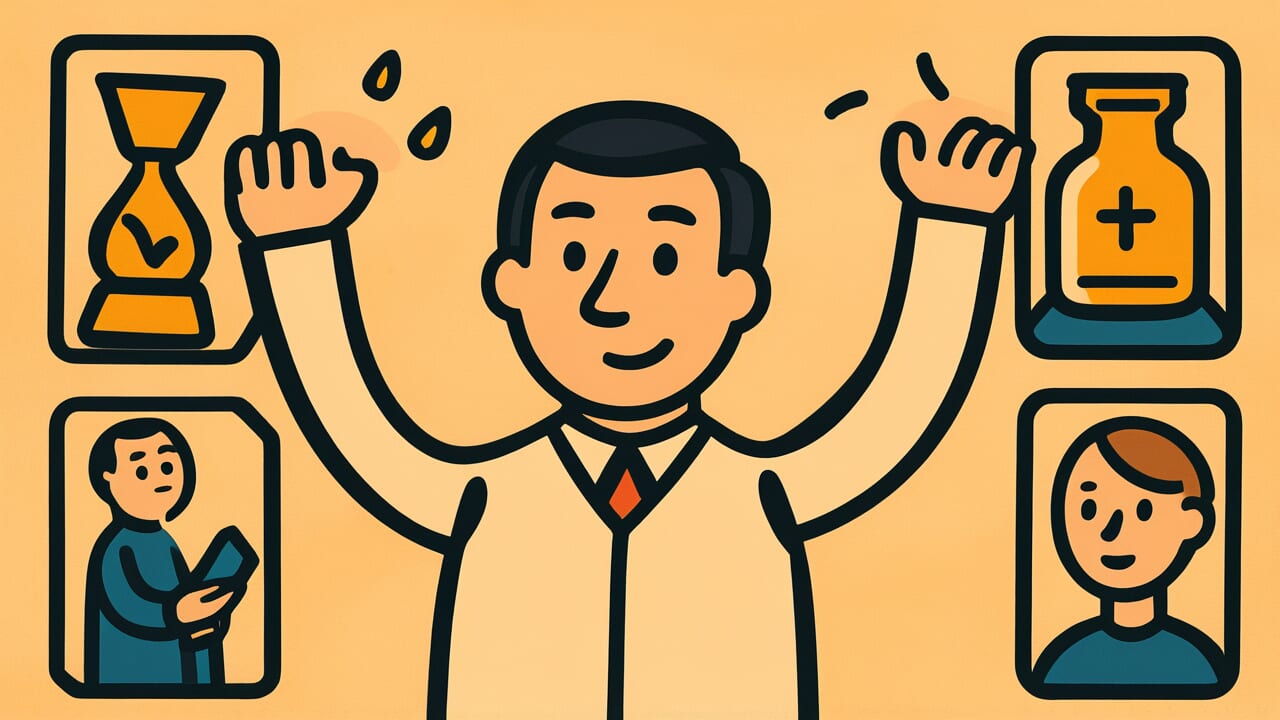How to Read “Do not lose goodness, do not let evil grow”
Zen wa ushinau bekarazu, aku wa chōzu bekarazu
Meaning of “Do not lose goodness, do not let evil grow”
This proverb teaches that we must never lose our good heart, and we must nip evil in the bud before it grows large.
What’s important here is that goodness is seen as something already inside us. People are born with good hearts, but we tend to lose sight of them in daily life.
Busyness and temptation can make us forget our goodness. Meanwhile, evil is described as something that “grows.”
A small lie, a little laziness, a minor dishonesty—these may start small. But if left alone, they gradually become bigger and lead to irreversible consequences.
This proverb is used when reflecting on our hearts and actions in daily life. It teaches that both are necessary for personal growth.
We need the effort to maintain our good heart and the courage to remove bad sprouts early.
Origin and Etymology
The exact source of this proverb has multiple theories. It likely comes from Chinese classical thought, especially Confucian and Buddhist teachings.
However, which specific text brought it to Japan remains unclear.
Looking at the language structure, it uses classical prohibition expressions: “ushinau bekarazu” and “chōzu bekarazu.” This “bekarazu” form was commonly used in moral texts before and during the Edo period.
It carries a dignified, formal tone. The structure contrasting good and evil with clear attitudes toward each reflects typical East Asian teaching methods.
What’s interesting is that this proverb doesn’t simply command “do good, don’t do evil.” Instead, it uses the verbs “lose” and “grow.”
This assumes that both good and evil already exist within the human heart. In other words, people have good hearts but are weak and may lose them.
At the same time, there’s danger that small evils may grow. This shows deep insight into human nature.
From this expression, we can see this proverb wasn’t born as a simple moral command. It emerged as a teaching that observes the movements of the human heart.
Usage Examples
- He never overlooks small wrongdoings because he believes in “Do not lose goodness, do not let evil grow”
- Continuing small acts of kindness every day is important, as they say “Do not lose goodness, do not let evil grow”
Universal Wisdom
This proverb has been passed down because it brilliantly captures the dual nature of the human heart.
We are all born with good hearts. As children, everyone has experienced the pure desire to help or please a friend in trouble.
But as we grow older, that pure heart gets covered by many things. Competition, envy, self-protection, and most of all, the indulgence of “this much is okay.”
Unless we consciously protect it, our good heart can be lost surprisingly easily.
On the other hand, evil grows remarkably fast. What starts as “just a little” or “just this once” gradually becomes normal.
Eventually it grows into a major mistake. Once we choose the easy path, human nature tends to flow in that direction.
Like a stone rolling downhill, evil grows on its own if left unchecked.
The deep wisdom of this proverb lies in not seeing good and evil as simple opposites. Instead, it recognizes they each have different natures.
Good must be protected; evil must not be allowed to grow. This distinction is the fundamental attitude for living as a human being.
When AI Hears This
Good and evil each function as self-replicating systems. In complexity science, small changes entering positive feedback loops cause uncontrollable avalanche phenomena once they pass a critical threshold.
Take forest fires as an example. An initial small spark burns surrounding trees, and that heat dries a wider area, accelerating the spread. Good and evil have the same structure.
Research shows people who receive kindness are about three times more likely to be kind to others. In other words, goodness chains together.
Meanwhile, data shows that overlooking small workplace misconduct dramatically increases the probability of organization-wide normalization of misconduct within six months. This is known as the “broken windows theory.”
What’s important is that in early stages, neither good nor evil stands out. But once they pass the critical threshold, reversal becomes extremely difficult.
Even more interesting is that good and evil reach their critical thresholds at asymmetric speeds. Evil accompanies strong emotions like anxiety and fear, activating the brain’s amygdala.
This makes it more memorable and easier to imitate. In other words, evil spreads faster.
That’s precisely why small sprouts of evil must be plucked early, and small goods must be consciously nurtured. This isn’t a moral issue but a scientific strategy for maintaining system stability.
Lessons for Today
What this proverb teaches modern people is the truth that daily small choices accumulate to shape our lives.
When you’re about to write hurtful words on social media, when you’re about to cut corners at work, when you’re about to ignore someone in trouble—remember this proverb in those moments.
Maintaining a good heart isn’t difficult at all. Morning greetings, words of gratitude, a little help—continuing such small kindnesses every day keeps your good heart shining.
At the same time, when you notice a bad thought sprouting in your heart, have the courage to pluck it immediately.
Our ancestors knew that the indulgence of “this much is okay” eventually leads to irreversible consequences.
What matters isn’t aiming for perfection. You’ll fail sometimes. But the attitude of trying to maintain a good heart and the awareness to notice and correct bad sprouts—these themselves help you grow.
Starting today, why not carefully nurture your heart?



Comments